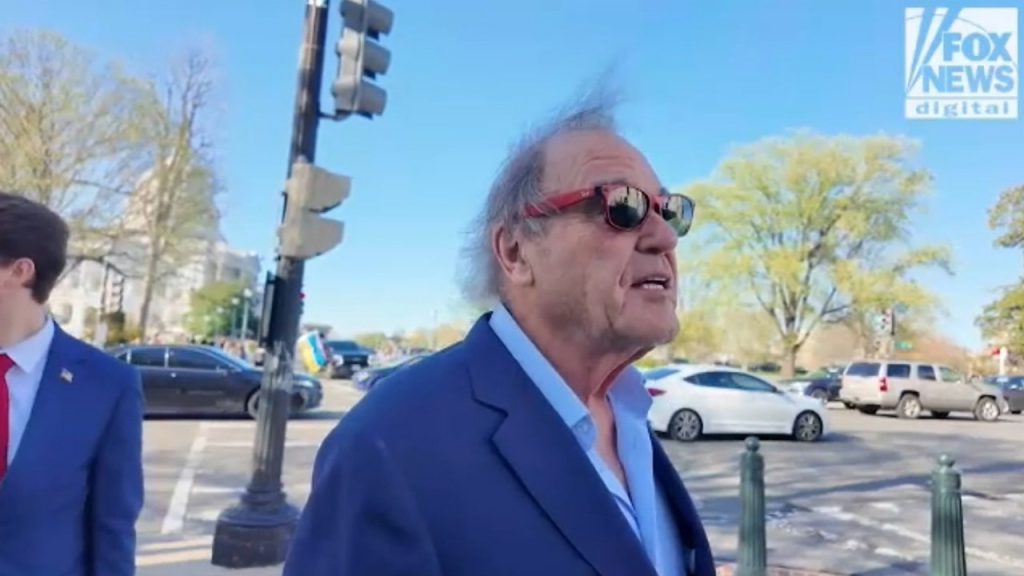In a recent commentary, filmmaker Oliver Stone has criticized the Democratic Party for allegedly manipulating federal law enforcement as part of a broader agenda to undermine political adversaries. Stone’s remarks come in light of the controversy surrounding the 2016 election and the Russian collusion narrative that has defined much of the political discourse since then. He also expressed support for former President Donald Trump as he seeks to declassify documents related to the investigation, asserting that governmental resources have been weaponized against political opponents.
| Article Subheadings |
|---|
| 1) Stone’s Critique of Federal Law Enforcement |
| 2) Trump’s Executive Order and Its Implications |
| 3) The Russian Narrative and Stone’s Perspective |
| 4) Concerns Over Censorship and Free Speech |
| 5) Broader Context and Potential Fallout |
Stone’s Critique of Federal Law Enforcement
In recent comments, Oliver Stone has not held back in his criticism of what he describes as the Democratic Party’s manipulation of federal law enforcement agencies. He argues that this tactic was particularly evident during the investigation into alleged Russian interference in the 2016 election. Stone’s remarks invoke a larger narrative that suggests the use of federal resources to target political opponents undermines the integrity of democratic institutions. He has pointed out that the allegations brought forth during the Russiagate saga involved significant lying and disinformation, a sentiment he feels has harmed the American public’s trust in both government and media.
Trump’s Executive Order and Its Implications
Former President Donald Trump recently took significant steps by signing an executive order aimed at declassifying documents related to the Crossfire Hurricane investigation. This inquiry was launched in 2016 to assess potential collusion between the Trump campaign and Russian officials. By ordering the immediate declassification of these files, Trump aims to shed light on what he refers to as unjust actions against his campaign. Additionally, Trump has indicated plans to enforce stricter measures against law firms he believes contributed to both the investigation’s launch and its narrative, including suspending security clearances for attorneys involved in those cases. These measures underscore a fundamental shift in how political investigations are treated and set a precedent for future administrations.
The Russian Narrative and Stone’s Perspective
Stone’s views extend into the broader characterization of Russia within U.S. politics. He has consistently criticized the mainstream portrayal of Russia as an adversarial entity. During his recent interview, Stone remarked that the assumption of Russia being a nefarious actor is not only incorrect but also “un-American.” According to Stone, the dialogue around Russia has been heavily influenced by propaganda that skews public perception to see Russia as an enemy. His assertion that Russia could potentially be an ally aligns with his broader critique of U.S. foreign policy, suggesting a need for a reevaluation of America’s diplomatic posture.
Concerns Over Censorship and Free Speech
While Stone expressed support for Trump’s actions regarding the Russiagate investigation, he voiced deep concerns over the former president’s increasingly aggressive stance on censoring what he deems antisemitic speech. According to Stone, this approach threatens values rooted in free speech that should be cherished in a democratic society. He worries that such tactics could lead to broader censorship, which he perceives as contradictory to the liberty promised by democratic governance. Stone’s dissent on this issue highlights an internal conflict within political spheres where the defense of free expression might come at a cost to public policy.
Broader Context and Potential Fallout
The commentary from figures like Stone may reflect a growing divide within political discourse on how federal institutions operate and the ramifications of their perceived biases. As Trump moves forward with his legal and political strategies regarding the Russiagate allegations, the long-term consequences on party politics and public trust in federal institutions remain uncertain. Stone’s criticisms may resonate with many voices in the political arena who feel similarly skeptical about the integrity of federal investigations. The unfolding events could lead to significant shifts not only in the political landscape but also in how transparency and accountability are viewed within institutions designed to uphold democratic principles.
| No. | Key Points |
|---|---|
| 1 | Oliver Stone criticized Democrats for allegedly weaponizing federal law enforcement against political opponents. |
| 2 | Trump’s executive order aims to declassify documents related to the Russiagate investigation. |
| 3 | Stone argues that the mainstream narrative around Russia is distorted and harmful to U.S. interests. |
| 4 | Concerns have arisen regarding Trump’s stance on censorship and its implications for free speech. |
| 5 | The ongoing events may lead to significant shifts in public trust towards federal institutions. |
Summary
The discourse initiated by Oliver Stone encapsulates a critical moment in American politics as it pertains to the role of federal institutions and the ongoing narrative surrounding Russian interference in the electoral process. As Donald Trump takes decisive steps to unravel the foundations of the Russiagate investigation, the implications of these actions stretch beyond individuals involved; they reflect a deepening divisions within the political landscape, the question of free speech, and the fundamental trust in governmental authority. The political fallout of these events could redefine the relationship between political adversaries and institutions designed to maintain integrity within the electoral process.
Frequently Asked Questions
Question: What is Stone’s main criticism of the Democratic Party?
Stone criticizes the Democratic Party for allegedly manipulating federal law enforcement to undermine political opponents, particularly during the investigation into Russian interference in the 2016 election.
Question: What actions has Trump taken regarding the Russiagate investigation?
Trump signed an executive order to declassify documents related to the Crossfire Hurricane investigation and plans to take action against law firms involved in the Russiagate narrative.
Question: How does Stone view the portrayal of Russia in American media?
Stone posits that the portrayal of Russia as a hostile actor is fundamentally incorrect and heavily influenced by propaganda, arguing instead for a more nuanced understanding of U.S.-Russia relations.


